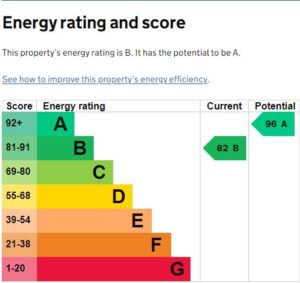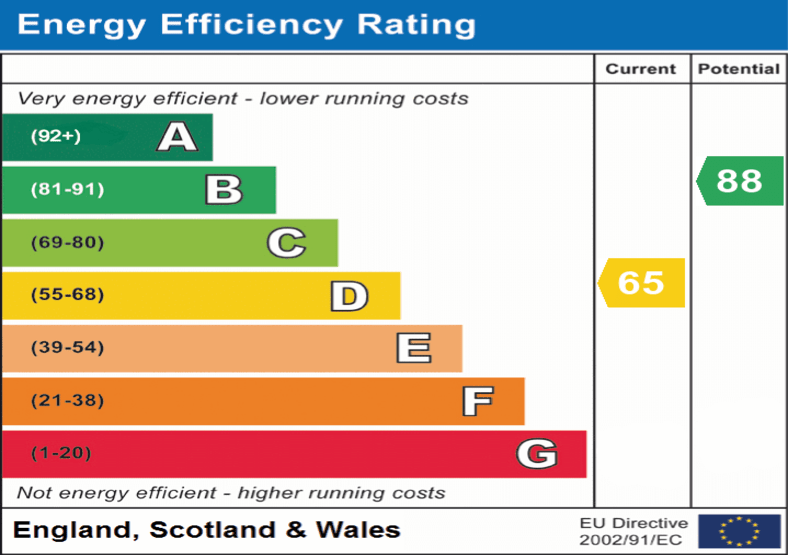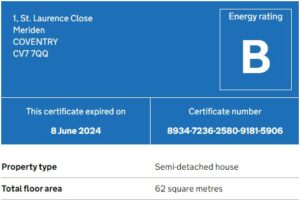£90.00 + VAT
You’re required by law to have a valid EPC, click “view details” for more information. If you do not have a valid EPC, you can be fined between £500 and £5,000.
Description
What is an EPC?
An Energy Performance Certificate (EPC) measures the energy efficiency of a building. It indicates the expected costs for heating and lighting your property, alongside its anticipated carbon dioxide emissions. Additionally, it offers suggestions on how to enhance your property’s energy efficiency.
The EPC rating scale ranges from A to G, with A signifying the highest efficiency and G the lowest. These certificates are valid for a duration of 10 years from the issuance date.

Do All Buildings Require an EPC?
Most residential properties will necessitate an EPC, though there are exceptions. An EPC is not required for:
- Temporary buildings used for a maximum duration of 2 years
- Stand-alone buildings with a total ‘useful’ floor area under 50 square meters
- Properties slated for demolition
- Holiday rentals leased for fewer than 4 months annually or under a licence to occupy
- Listed buildings
- Residential properties intended for use for less than 4 months a year
Why is an EPC Necessary When Selling Your House?
By law, you need a valid EPC when selling your house, unless your property is exempt as per the above criteria. Failure to present a valid EPC can result in fines ranging from £500 to £5,000.
Why is an EPC Beneficial for Buyers?
An EPC provides buyers with valuable insights into the energy efficiency of a property. It helps them estimate the costs associated with heating and lighting and identifies potential upgrades to improve energy efficiency.
What Occurs During the Assessment?
During an EPC assessment, an energy assessor will require access to your entire property. They will evaluate various aspects, including:
- The construction, age, and size of the property
- The type of windows (single, double, or triple glazed)
- The type of lighting used, focusing on energy-saving or low-energy options
- Secondary heat sources, including renewable energy systems
- Primary heating controls, such as boilers and radiators
- Insulation, including cavity wall and loft insulation
How Can I Find Out If I Already Have an EPC?
To check if your property already has an EPC, use the following link and enter your property details:
Find an Energy Certificate in England, Wales, and Northern Ireland








